Notice
Social Mix Policies and Research: Finding the "Right Balance" [VO] / Sako Musterd
- document 1 document 2 document 3
- niveau 1 niveau 2 niveau 3
Descriptif
Social Mix Policies and Research: Finding the "Right Balance" [version anglaise] / Sako Musterd. In "Mixité : an urban and housing issue? Mixing people, housing and activities as urban challenge of the future", 23ème colloque international de l'European Network for Housing Research (ENHR), organisé par le Laboratoire Interdisciplinaire Solidarités, Sociétés, Territoires (LISST) à l'Université Toulouse II-Le Mirail, 5-8 juillet 2011.
Plénière 1: Mixité, diversity: pertinent notions?, 6 juillet 2011.
‘Social mixing’ has been embraced by several governments as a remedy for urban social problems, or perhaps as an instrument to address other urban issues as well. It has become a part of strategies to ‘restructure’, ‘revitalize’ and ‘regenerate’ urban areas. However, social mixing initiatives, and the urban poverty discourse to which these initiatives are connected, have also been subject to substantial critiques. Many academics have challenged the assumptions underlying social mixing strategies, as well as the way social mix policies are expected to translate into positive outcomes for residents. There is also criticism focused on not paying attention to the negative sides of social mixing, to broken social networks, spillover effects, and the populations that become excluded from ‘socially mixed neighbourhoods’. Nevertheless, there also is a body of academic literature that is taken very seriously, which shows or advocates that there indeed seem to be positive impacts of social mix strategies. Various recent large-scale neighbourhood effect studies support these viewpoints. These studies argue that living among poor people perpetuates individual poverty, whereas middle-class neighbours provide benefits. These findings thus seem to justify policy efforts to intervene in the social makeup of poor neighbourhoods. This "paper" reflects on these contrasting views, opinions, and findings and tries to find the answer to the question what the ‘right balance’ actually is.
Thème
Documentation
Bibliographie sélective
- Gentrifiers Settling Down? Patterns and Trends of Residential Location of Middle-Class Families. Willem R. BOTERMAN, Lia KARSTEN, Sako MUSTERD. Amsterdam : Housing Studies n°5, vol. 25, 2010, pp. 693-714. [accessible en ligne, pour les établissements abonnés, à partir de la page personnelle de Sako Musterd].
- Spatial Segregation and Integration in the Netherlands. Sako MUSTERD, Wim OSTENDORF. Journal of Ethnic and Migration Studies n°9, vol. 35, 2009.
- Creative and knowledge cities: development paths and policies from a European perspective. Sako MUSTERD, Olga GRITSAI. Built Environment n° 2, vol. 35, juin 2009, pp.173-188. [accessible en ligne, pour les établissements abonnés, à partir de la page personnelle de Sako Musterd].
- Residents' Views on Social Mix: Social Mix, Social Networks and Stigmatisation in Post-war Housing Estates in Europe. Sako MUSTERD. Urban Studies n° 4, vol. 45, april 2008, pp. 897-915.
- What Mix Matters? Exploring the Relationships between Individual’s Incomes and Different Measures of their Neighbourhood Context. Sako MUSTERD and al.. In R. Paddison and al., "Cities as Social Spaces", Urban Studies: Society, vol. 1, 2007, pp. 181-204.
- Urban Segregation and the Welfare State. Inequality and exclusion in western cities. Sako MUSTERD, Wim OSTENDORF. London : Routledge, 1998, 292 p. [rééd. Taylor & Francis, 2007].
- The Declining Significance of Race. Blacks and Changing American Institutions. William Julius WILSON, Chicago : The University of Chicago Press, 1978. (rééd. avec mise à jour en 1980).
Dans la même collection
-
Mixité, an urban and housing issue: ouverture du colloque [VO] / P. Boelhouwer, F. Ménard et al.
FilâtreDanielJailletMarie-ChristineMénardFrançoisBoelhouwerPeterMixité, an urban and housing issue : ouverture du colloque [version originale] / Daniel Filâtre, Peter Boelhouwer, François Ménard, Marie-Christine Jaillet. In "Mixité : an urban and housing issue?
-
Mixité, an urban and housing issue: ouverture du colloque [VF] / P. Boelhouwer, F. Ménard et al.
FilâtreDanielJailletMarie-ChristineMénardFrançoisBoelhouwerPeterMixité, an urban and housing issue : ouverture du colloque / Daniel Filâtre, Peter Boelhouwer, François Ménard, Marie-Christine Jaillet. In "Mixité : an urban and housing issue? Mixing people, housing
-
Mixité, an urban and housing issue: introduction au colloque [VF]/ M.-C. Jaillet, Jean-Claude Driant
JailletMarie-ChristineDriantJean-ClaudeMixité, an urban and housing issue : introduction au colloque [version française avec traduction consécutive ou simultanée] / Marie-Christine Jaillet, Jean-Claude Driant. In "Mixité : an urban and
-
Mixité, an urban and housing issue: introduction au colloque [VO]/ M.-C. Jaillet, Jean-Claude Driant
JailletMarie-ChristineDriantJean-ClaudeMixité, an urban and housing issue : introduction au colloque [version originale] / Marie-Christine Jaillet, Jean-Claude Driant. In "Mixité : an urban and housing issue? Mixing people, housing and
-
Legal framework for sustainable communities: affordable housing / Juli Ponce
Ponce SoléJuliLegal Framework for sustainable communities: affordable housing / Juli Ponce. In "Mixité : an urban and housing issue? Mixing people, housing and activities as urban challenge of the future", 23ème
-
European mortgage markets after the credit crisis / Kathleen J. Scanlon
ScanlonKathleenEuropean mortgage markets after the credit crisis / Kathleen J. Scanlon. In "Mixité : an urban and housing issue? Mixing people, housing and activities as urban challenge of the future", 23ème
-
Implementing "Mixité". Discourses and experiences of politicians and stakeholders: Round Table [VF]
RenardVincentAllenBarbaraGeindreFrançoisMoraBéatrixImplementing "Mixité" : discourses and experiences of politicians and other stakeholders. Round Table [version en anglais avec deux interventions traduites en français en simultané].
-
End or future of the Social Housing, beyond Europe: bilan, synthèse, critique / Christoph Reinprecht
ReinprechtChristophEnd or future of the Social Housing, beyond Europe : bilan, synthèse, critique de la plénière / Christoph Reinprecht. In "Mixité : an urban and housing issue? Mixing people, housing and activities as
-
Approaches, pratices, challenges of mixité in urban contexts: présentation plénière [VF]/ Ian Cole
ColeIanApproaches, pratices and challenges of mixité in different urban contexts : présentation de la plénière / Ian Cole [version française]. In "Mixité : an urban and housing issue? Mixing people, housing
-
Social Housing in Post-socialist Europe : Lost in Transition / Sasha Tsenkova
TsenkovaSashaSocial Housing in Post-socialist Europe : Lost in Transition / Sasha Tsenkova. In "Mixité : an urban and housing issue? Mixing people, housing and activities as urban challenge of the future", 23ème
-
The grammar of "mixed communities": urban injustice and the Aylesbury Estate [VF] / Loretta Lees
LeesLorettaThe grammar of "mixed communities": urban injustice and the Aylesbury Estate [version française] / Loretta Lees. In "Mixité : an urban and housing issue? Mixing people, housing and activities as urban
-
Public-Private and Social Housing in Post-crisis East Asia / Richard Ronald
RonaldRichardPublic-Private and Social Housing in Post-crisis East Asia / Richard Ronald. In "Mixité : an urban and housing issue? Mixing people, housing and activities as urban challenge of the future", 23ème
Avec les mêmes intervenants et intervenantes
-
Social Mix Policies and Research: Finding the "Right Balance" [VF] / Sako Musterd
MusterdSakoSocial Mix Policies and Research: Finding the "Right Balance" [version avec traduction simultanée en français] / Sako Musterd. [version doublée en français] In "Mixité : an urban and housing issue?

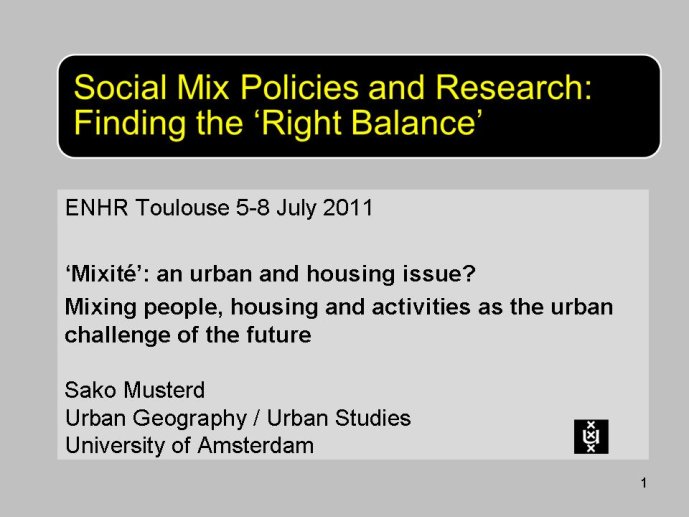
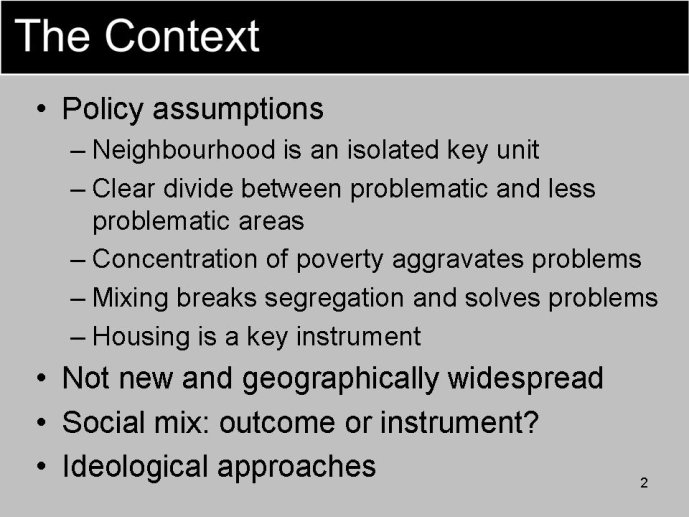
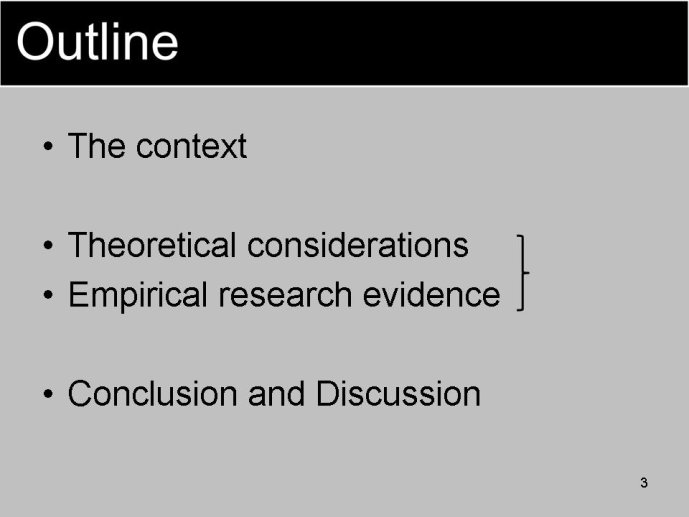
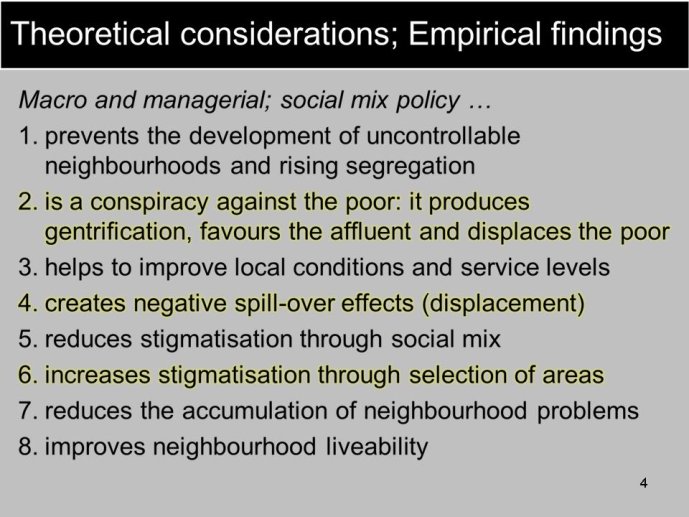
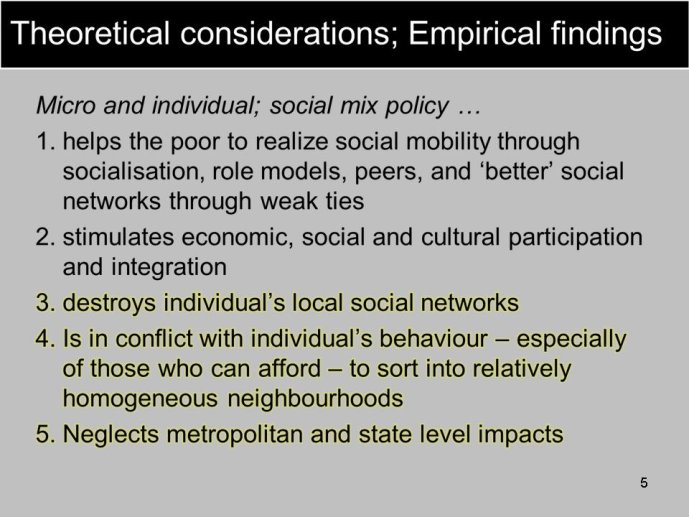
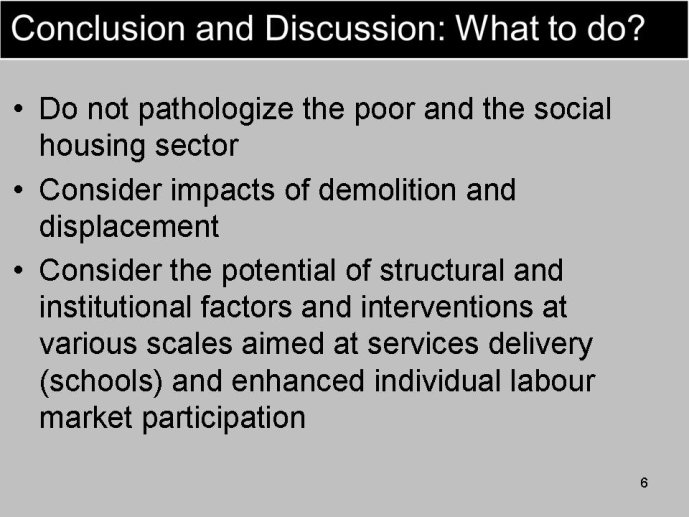
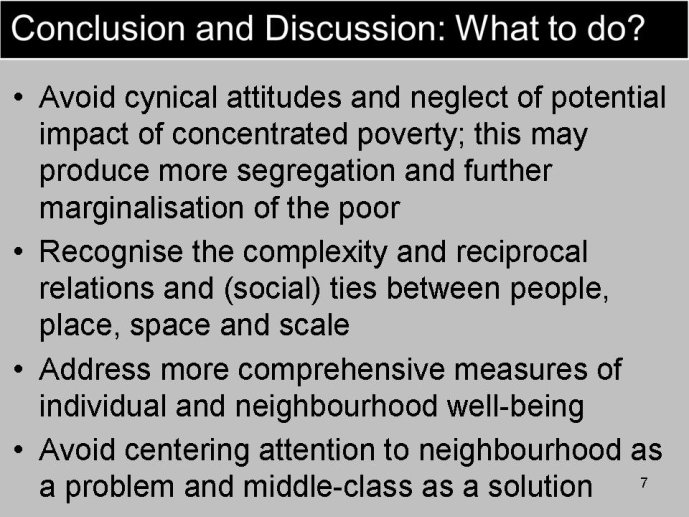

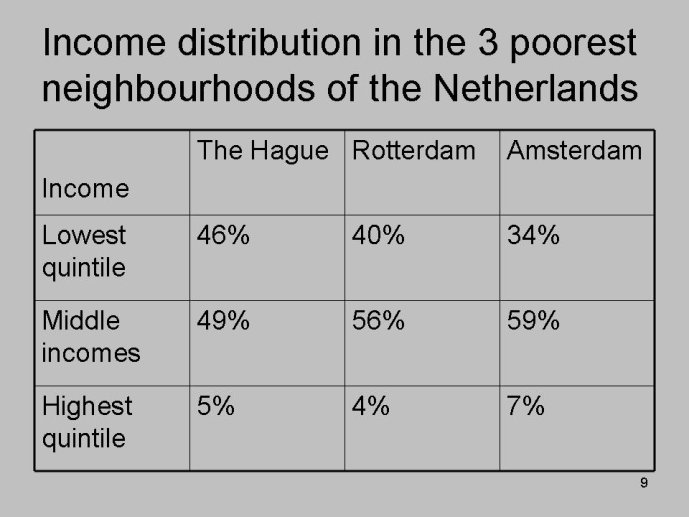
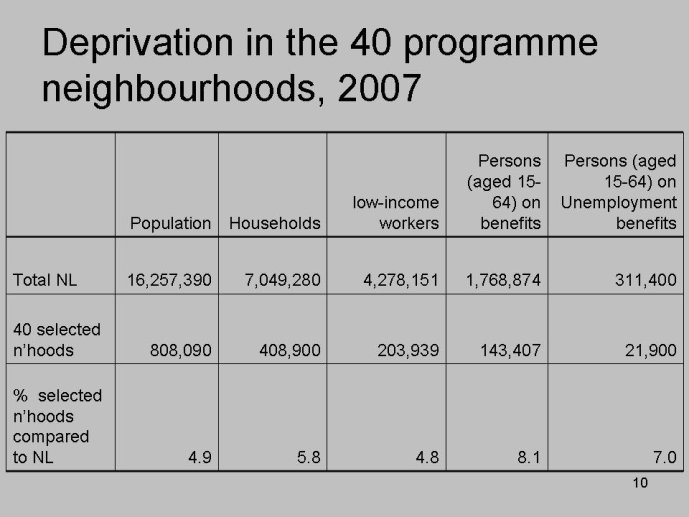
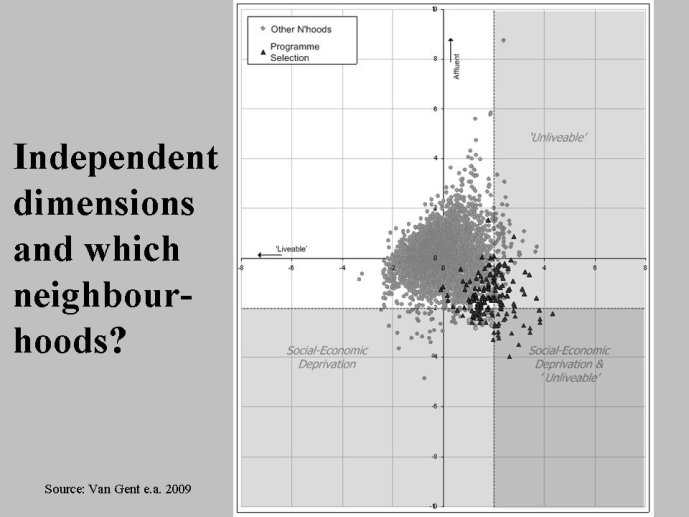

![Mixité, an urban and housing issue: ouverture du colloque [VO] / P. Boelhouwer, F. Ménard et al.](https://vod.canal-u.tv/videos/media/images/themes/sciences_humaines_sociales_de_l_education_et_de_l_information/sciences_de_la_societe/sociologie_anthropologie_ethnologie/sociologie/services_et_problemes_sociaux/mixite_an_urban_and_housing_issue_ouverture_du_colloque_vo_p_boelhouwer_f_menard_et_al/2175742-14-fre-FR/mixite_an_urban_and_housing_issue_ouverture_du_colloque_vo_p_boelhouwer_f_menard_et_al.gif)
![Mixité, an urban and housing issue: ouverture du colloque [VF] / P. Boelhouwer, F. Ménard et al.](https://vod.canal-u.tv/videos/media/images/themes/sciences_humaines_sociales_de_l_education_et_de_l_information/sciences_de_la_societe/sociologie_anthropologie_ethnologie/sociologie/services_et_problemes_sociaux/mixite_an_urban_and_housing_issue_ouverture_du_colloque_vf_p_boelhouwer_f_menard_et_al/2161572-30-fre-FR/mixite_an_urban_and_housing_issue_ouverture_du_colloque_vf_p_boelhouwer_f_menard_et_al.gif)
![Mixité, an urban and housing issue: introduction au colloque [VF]/ M.-C. Jaillet, Jean-Claude Driant](https://vod.canal-u.tv/videos/media/images/themes/sciences_humaines_sociales_de_l_education_et_de_l_information/sciences_de_la_societe/sociologie_anthropologie_ethnologie/sociologie/services_et_problemes_sociaux/mixite_an_urban_and_housing_issue_introduction_au_colloque_vf_m_c_jaillet_jean_claude_driant/2162823-25-fre-FR/mixite_an_urban_and_housing_issue_introduction_au_colloque_vf_m_c_jaillet_jean_claude_driant.gif)
![Mixité, an urban and housing issue: introduction au colloque [VO]/ M.-C. Jaillet, Jean-Claude Driant](https://vod.canal-u.tv/videos/media/images/themes/sciences_humaines_sociales_de_l_education_et_de_l_information/sciences_de_la_societe/sociologie_anthropologie_ethnologie/sociologie/services_et_problemes_sociaux/mixite_an_urban_and_housing_issue_introduction_au_colloque_vo_m_c_jaillet_jean_claude_driant/2175399-10-fre-FR/mixite_an_urban_and_housing_issue_introduction_au_colloque_vo_m_c_jaillet_jean_claude_driant.gif)
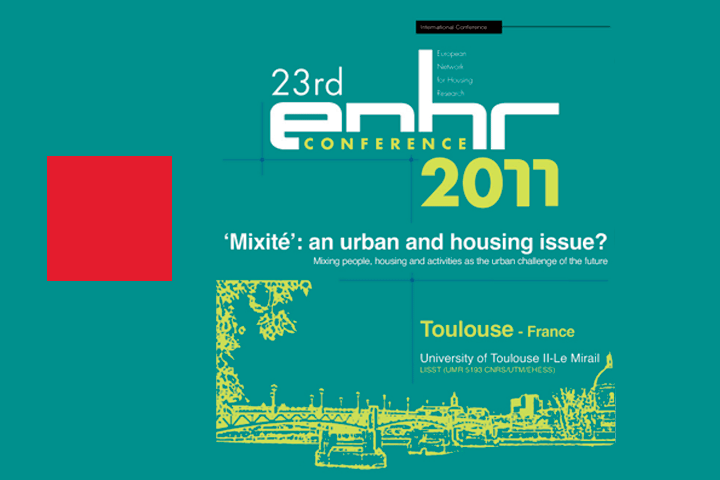
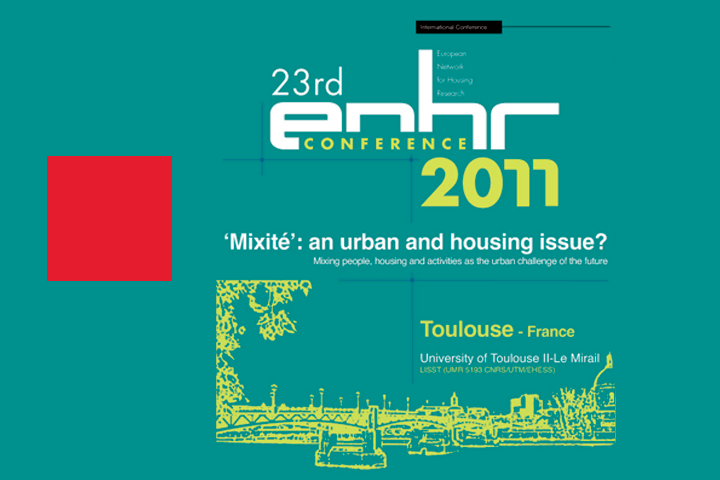
![Implementing "Mixité". Discourses and experiences of politicians and stakeholders: Round Table [VF]](https://vod.canal-u.tv/videos/media/images/themes/sciences_humaines_sociales_de_l_education_et_de_l_information/sciences_de_la_societe/sociologie_anthropologie_ethnologie/sociologie/services_et_problemes_sociaux/implementing_mixite_discourses_and_experiences_of_politicians_and_stakeholders_round_table_vf/2165463-16-fre-FR/implementing_mixite_discourses_and_experiences_of_politicians_and_stakeholders_round_table_vf.gif)
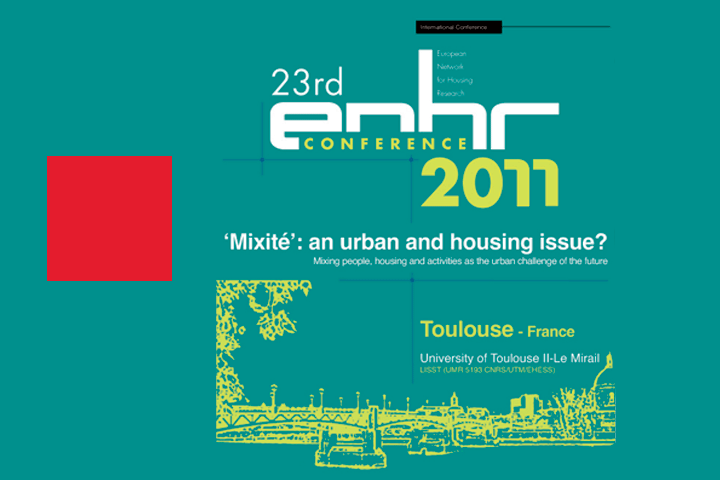
![Approaches, pratices, challenges of mixité in urban contexts: présentation plénière [VF]/ Ian Cole](https://vod.canal-u.tv/videos/media/images/themes/sciences_humaines_sociales_de_l_education_et_de_l_information/sciences_de_la_societe/sociologie_anthropologie_ethnologie/sociologie/services_et_problemes_sociaux/approaches_pratices_challenges_of_mixite_in_urban_contexts_presentation_pleniere_vf_ian_cole/2164972-9-fre-FR/approaches_pratices_challenges_of_mixite_in_urban_contexts_presentation_pleniere_vf_ian_cole.gif)
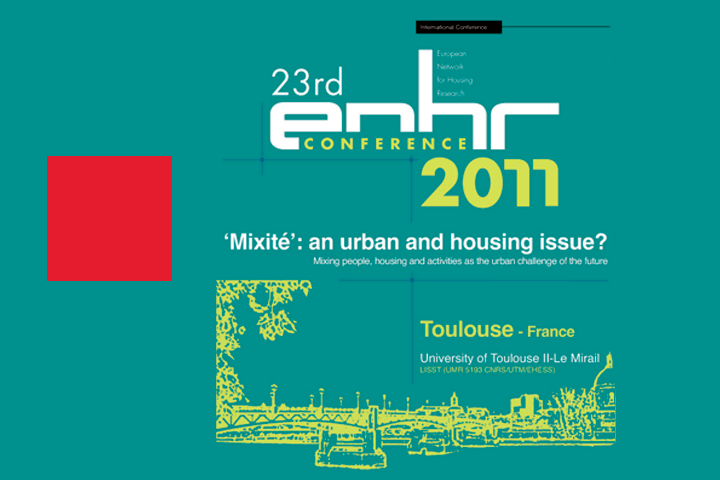
![The grammar of "mixed communities": urban injustice and the Aylesbury Estate [VF] / Loretta Lees](https://vod.canal-u.tv/videos/media/images/themes/sciences_humaines_sociales_de_l_education_et_de_l_information/sciences_de_la_societe/sociologie_anthropologie_ethnologie/sociologie/services_et_problemes_sociaux/the_grammar_of_mixed_communities_urban_injustice_and_the_aylesbury_estate_vf_loretta_lees/2165074-8-fre-FR/the_grammar_of_mixed_communities_urban_injustice_and_the_aylesbury_estate_vf_loretta_lees.gif)
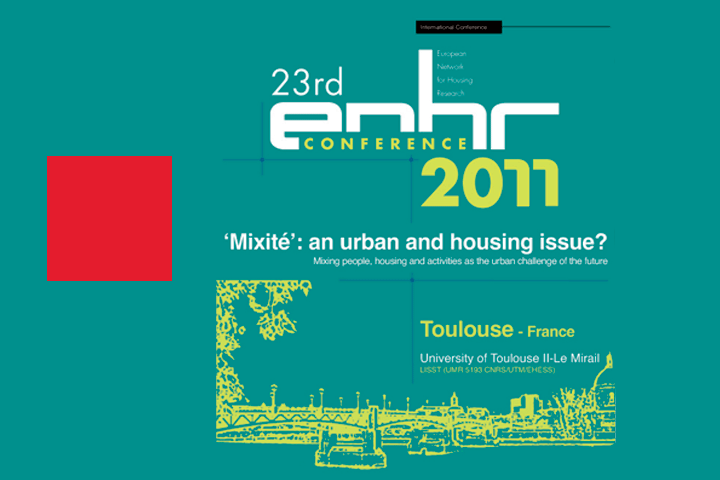
![Social Mix Policies and Research: Finding the "Right Balance" [VF] / Sako Musterd](https://vod.canal-u.tv/videos/media/images/themes/sciences_humaines_sociales_de_l_education_et_de_l_information/sciences_de_la_societe/sociologie_anthropologie_ethnologie/sociologie/services_et_problemes_sociaux/social_mix_policies_and_research_finding_the_right_balance_vf_sako_musterd/2163764-11-fre-FR/social_mix_policies_and_research_finding_the_right_balance_vf_sako_musterd.gif)